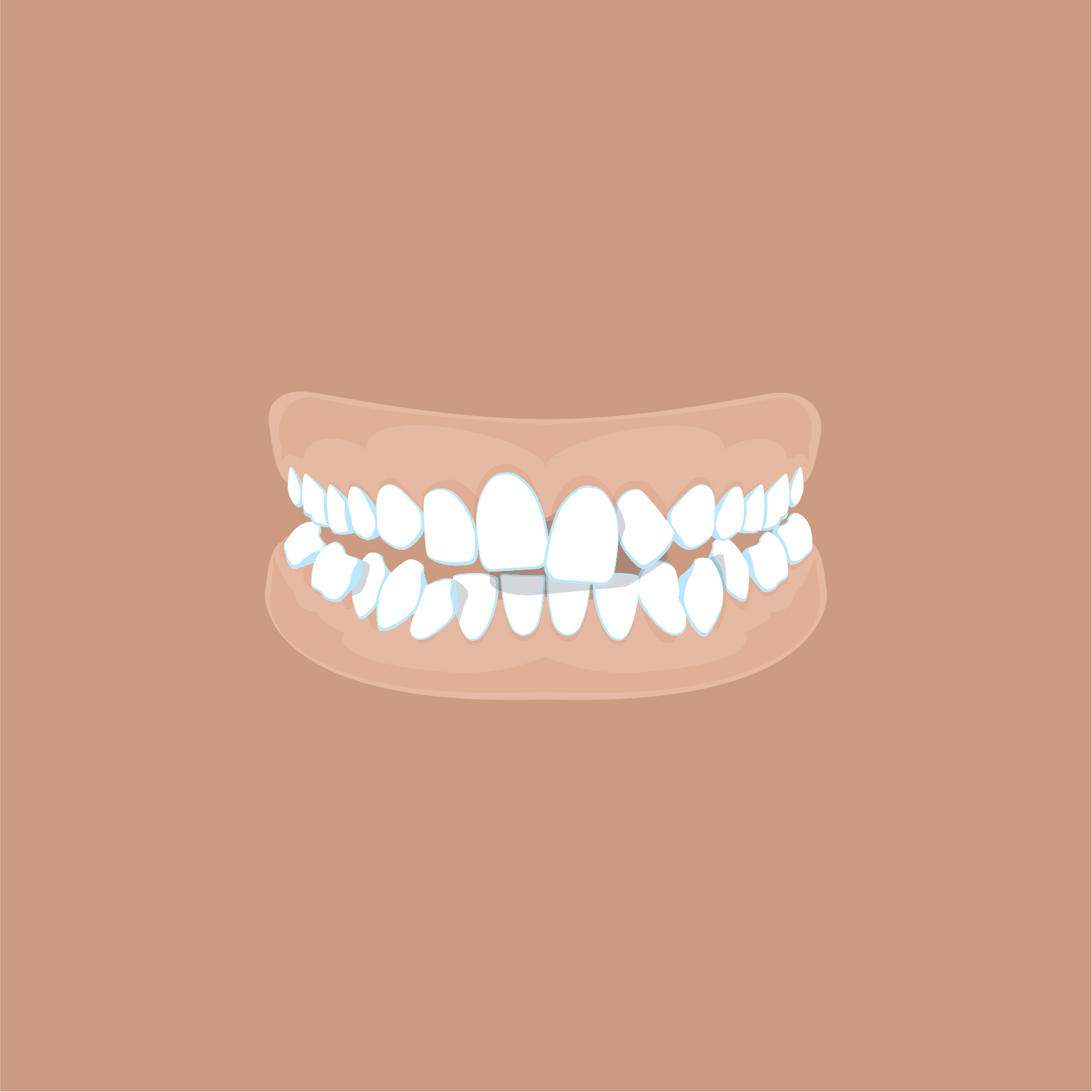What is crowding?
Crowding is a very common problem. It’s when when you have overlapping or misaligned teeth. This usually results in a lack of space for your teeth to fit within your jaws and can be caused by your teeth rotating or being displaced. The causes can vary, but often, misaligned teeth come down to genetics, accidents and injuries or habits like thumb sucking.
One of the biggest problems with crowding is that it becomes difficult to clean and properly look after you teeth. This can lead to all sorts of problems such as tooth decay and gum disease.
Most people will have a few minor crooked teeth in their lower jaw and some don’t always require treatment. Moderate crowding for the upper and/or lower jaws needs to be corrected in order for your teeth to grow in a healthy position in relation to your jawbones.
Causes of teeth crowding
There are a number of causes for teeth crowding. Often, it’s simply a growing issue, but others include:
- A cleft lip or palate
- Thumb sucking or frequent use of a dummy after the age of three
- Poor dental care
- Allergies and asthma
- Tongue thrusting (pushing you tongue against your teeth)
- Airway obstruction like mouth-breathing
- A misaligned jaw
- Accidents and prematurely lost teeth
Crowded teeth treatment options
As one of the most common problems, there are a range of treatment options to suit.
Clear aligner treatments like Invisalign, are a great alternative to traditional braces.
Lingual braces, while more expansive than traditional braces, are the most invisible tooth-straightening method available. They are glued to the inside surface of your teeth and are custom-made for your mouth to ensure maximum comfort.
The best treatment for efficacy and success though is traditional metal or ceramic braces. These can be used from mild to extreme cases, but with such varied treatments, the best way to find out what’s best for you is to book an appointment with Dr Whittle. He’ll be able to give you definitive answers and plot out your journey to a more confident smile.
